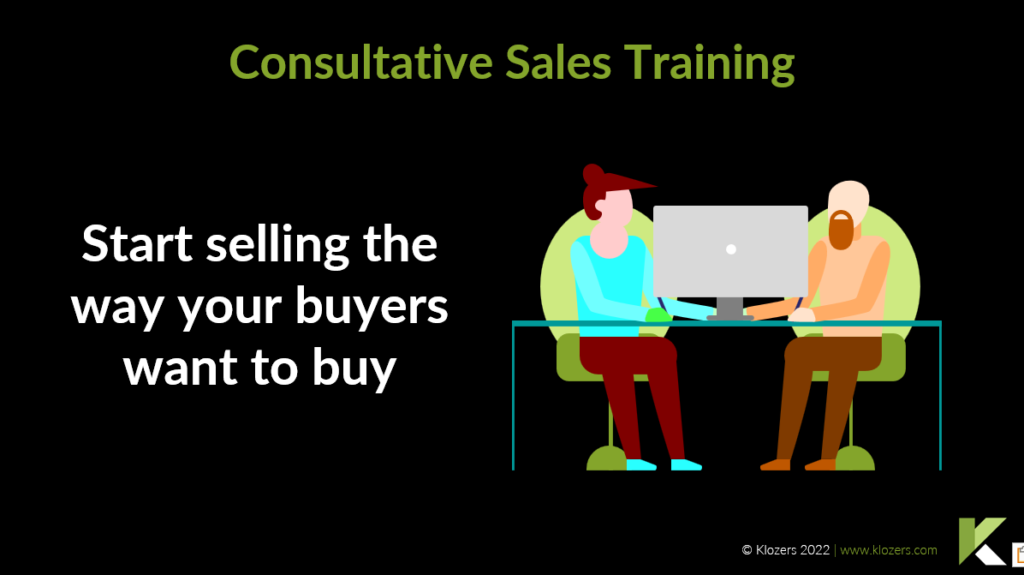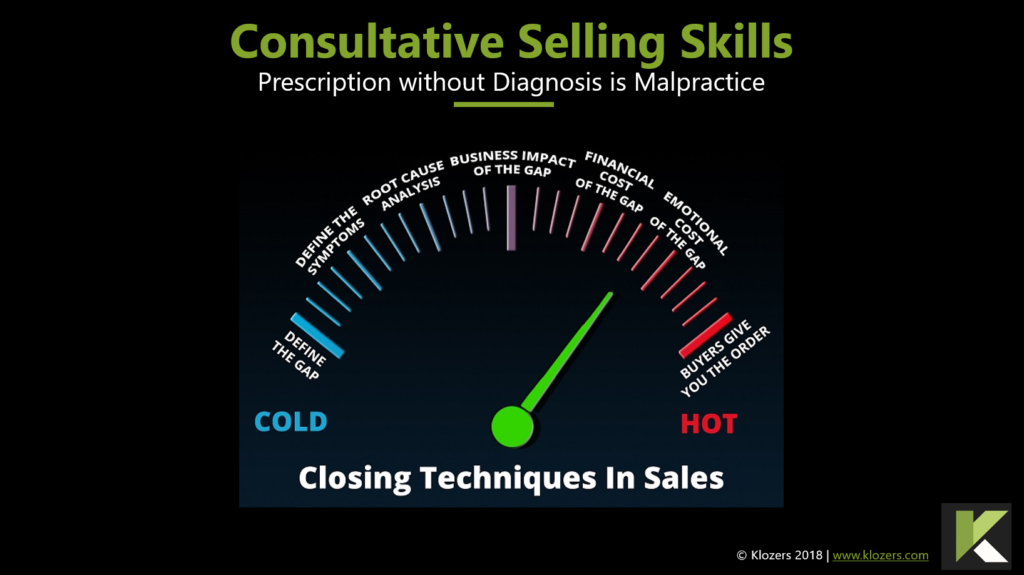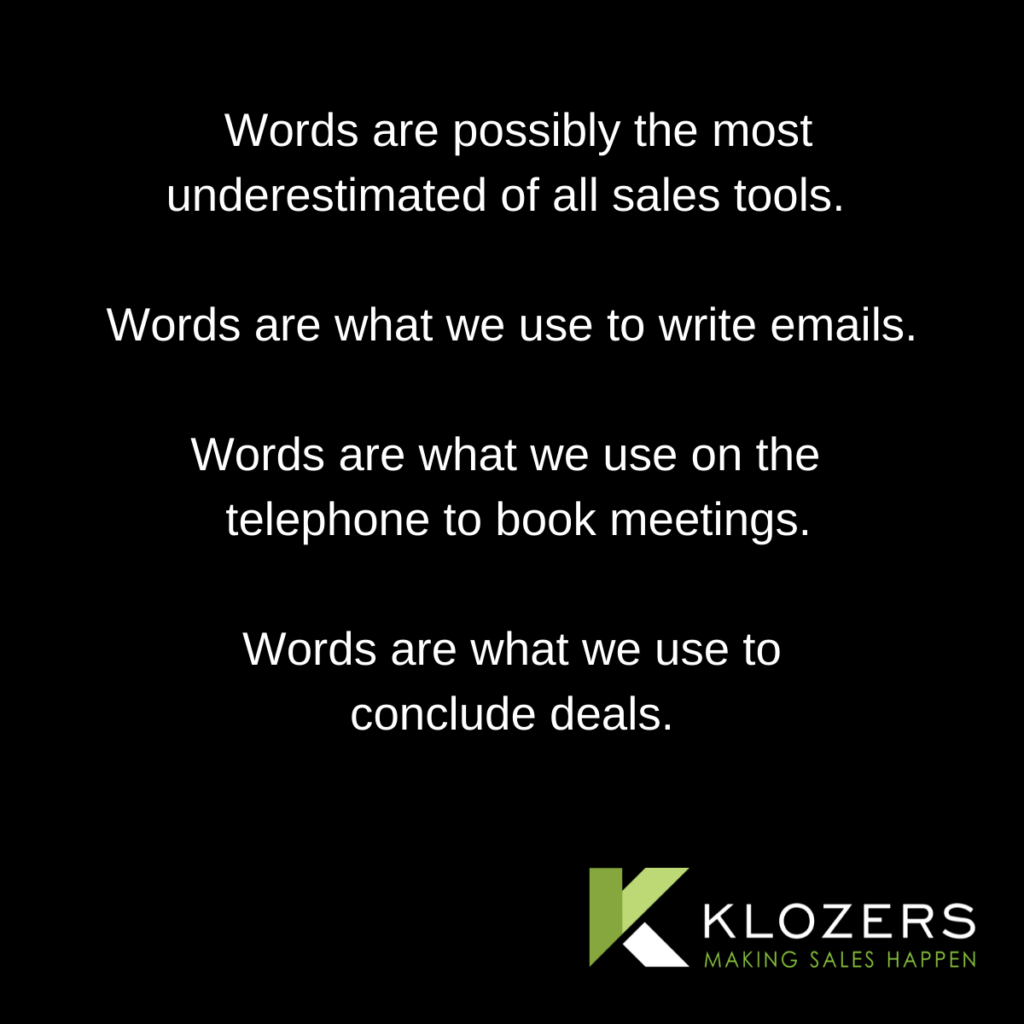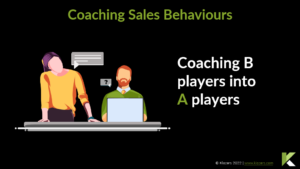1. Research potential buyers thoroughly before contacting them
Before engaging with potential buyers, it is important that the salesperson researches the potential customer, thoroughly and effectively. If the salesperson is used to a more traditional fast-paced sales environment, taking the time at the onset of the sales process to research may seem like an alien process.
However, first impressions matter, and considering the consultative selling method prides itself on expert knowledge, you need to make sure that you have done enough research. Similarly, consultative selling involves asking probing questions, and without enough research it can be difficult or almost impossible for salespeople to ask probing questions.
2. Define the Symptoms – What are the symptoms of the problem the potential customer is facing?
During this first step the salesperson will try to get an understanding of the issue at hand. Here the salesperson will play a role of expert consultant, where their expertise of the industry can be used to discuss the issues.
It is likely that the buyer may only have a surface-level knowledge of the symptoms, therefore the expertise of a consultative salesperson is vital.
At this stage, it is vitally important that the salesperson doesn’t revert to a more traditional techniques and try to sell products or services. This is because, it is very early in the process, and it is unlikely that the salesperson will have formed a fully rounded understanding of the issues at hand, and could recommend the wrong solution.
3. Root cause analysis – ask the buyer questions to understand and diagnose the underlying causes.
During this stage, the salesperson will need to dig deeper into the problem, and find out what is causing it.
By digging deeper into the problem, the salesperson can use their knowledge to generate powerful questions that will reassure the buyer that they are dealing with an expert in the field, and that they can use their expertise to offer solutions to their problem.
This step can be a really powerful tool to build the buyers confidence in the salesperson.
4. Business impact – Ask how the issue is impacting on the business. Does it impact on morale, performance, profitability or all three?
At this stage, the salesperson and the buyer have agreed on a diagnosis of the issue, and they will now begin to understand how this impacts on the business.
If the issue has very little impact on the business, in terms of profitability or revenue, then it is very unlikely that the buyer will look to make a significant contribution (either financially or with their time) to finding a solution.
If this is the case, or if the salesperson knows that their product or service isn’t the solution to the buyers problems, then the salesperson should cut their losses here.
5. Financial Impact – Find out how much the problem will cost the business if they do not fix it.
Identifying the financial impact of the issue is another major milestone in the consultative sales method. This can be easier to measure in objective measurements, such as monetary values, rather than subjective measurements such as staff morale or culture, which are far more difficult to monitor.
If the financial impact runs into the hundreds of thousands of pounds each year, and the solution only costs £10,000 then this could be a very attractive proposal for the buyer. Alternatively, if the solution costs £100,000, and it would only save the company £10,000 each year, it will be a much less attractive proposition to the buyer.
6. Personal Impact – Find out how the problem affects the buyer personally – how does it affect their day to day job?
Potential buyers are far more likely to be convinced by a solution, if the issue directly impacts upon them. This is why when using the consultative selling skills, it is vitally important to make sure that you are speaking to the right person.
If the salesperson and buyer are involved in a complex sales solution, it is likely that the 6 step process above may need to be repeated. It may also need to be repeated with different departments and stakeholders. Whilst this inevitably adds to the time taken to sell a product or service, patience is an important aspect of consultative sales.










